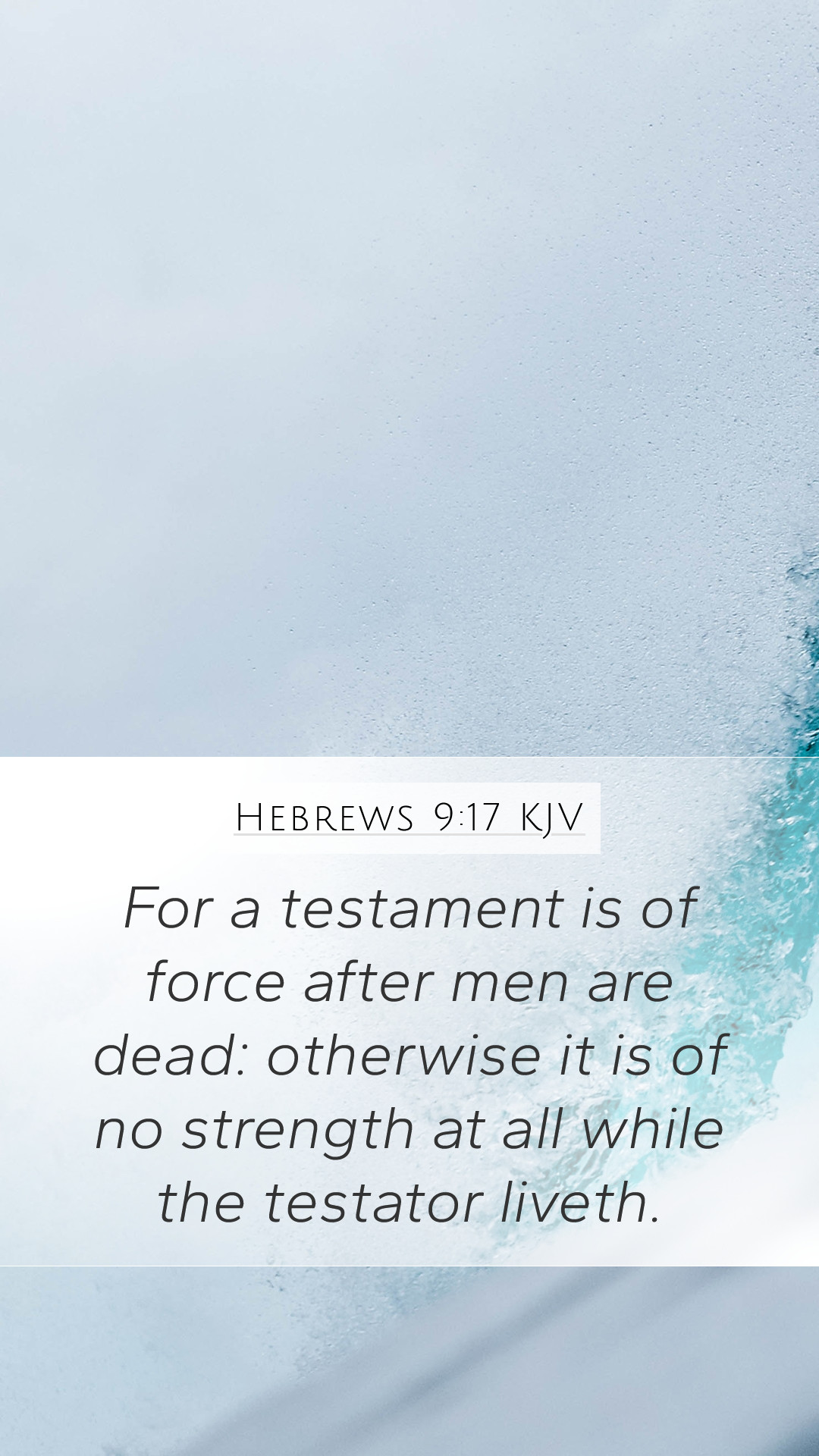Understanding Hebrews 9:17
Verse: Hebrews 9:17 states, "For a testament is of force after men are dead: otherwise it is of no strength at all while the testator liveth."
Bible Verse Meanings and Interpretations
This verse is pivotal in understanding the concept of covenants in the Bible, particularly in the context of Old and New Testament teachings. It emphasizes that a testament, or covenant, takes effect only after the death of the one who made it, known as the testator.
Insights from Public Domain Commentaries
-
Matthew Henry:
Henry elaborates on the importance of this principle in relation to the sacrifices of Christ. He points out that the New Covenant is based on the death of Christ, which validates the promises made within it. This highlights how the Old Covenant was rendered obsolete through the new testament that Christ established with His sacrifice, providing a more excellent ministry.
-
Albert Barnes:
Barnes suggests that the verse illustrates the nature of both earthly and heavenly covenants. The law, as given in the Old Testament, had no efficacy until the sacrificial system began, which ultimately foreshadowed Christ’s atonement. He also notes that the death of Jesus is not just a historical fact but a necessary event for the inauguration of the New Covenant.
-
Adam Clarke:
Clarke adds that this passage helps to clarify misunderstandings about the duration of validity of covenants. He interprets the word "force" as meaning that the terms of the covenant become active only when the testator has died. This understanding leads to a greater appreciation of the New Covenant, wherein Jesus’ death addressed the need for a redeemer and mediator for humanity.
Scripture Analysis
This verse forms part of a larger discourse on the role of Christ as the High Priest and mediator of the New Covenant. The analysis reveals how Hebrews emphasizes Christ's sacrificial act as the fulfillment of the promises established in earlier scriptures.
In-depth Examination
To better grasp the significance of Hebrews 9:17, one must consider the historical context of covenants in Jewish culture. The process of covenant-making was sacred and typically involved the death of a sacrifice, paralleling the ultimate sacrifice of Christ.
Related Bible Cross References
- Hebrews 9:15: Discusses Christ as the mediator of a new covenant.
- 1 Corinthians 11:25: References the New Covenant in the context of the Lord's Supper.
- Matthew 26:28: Jesus speaks of His blood as the blood of the New Covenant.
- Galatians 3:15: Talks about the nature of covenants being immutable.
- Romans 7:1-6: Explores the relationship between the law and death.
Application of Bible Verses to Daily Life
The understanding of Hebrews 9:17 not only enriches our theological knowledge but also has profound implications for daily living. Recognizing the finality and efficacy of Christ's sacrifice can transform how individuals perceive their relationship with God, emphasizing grace over works.
Conclusion
Hebrews 9:17 provides a crucial insight into the biblical concept of covenants. The interpretations from esteemed commentaries reveal that the death of Jesus is central to the establishment of the New Covenant. Understanding this passage deepens one's Bible study insights and enhances scriptural interpretation skills, aiding in the growth of believers in faith.


